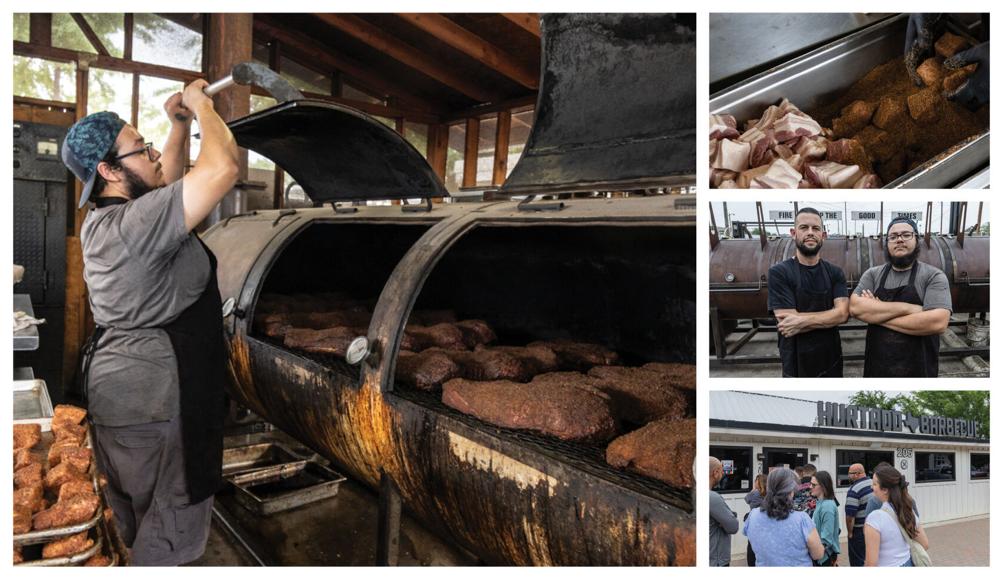Right before UTA’s first official drag show began in October 2013, alumna Milaun Murry wondered if anyone would show up.
“We were worried that we weren’t going to get a lot of people to attend,” said Murry, the event’s lead coordinator.
The journey to that first show at Rio Grande Ballroom took a lot of effort. She and the LGBTQ+ Program had to present the history of drag and the community’s presence in Arlington to convince the university’s leadership. The show wasn’t just a one-and-done. Instead, they would present a series of programs to educate the UTA community on drag as an art form.
Eventually, they got approval.
Moments before showtime, Murry shut the venue’s door to set up the stage. Then, she heard a knock.
“Our supervisor is frantic, and she’s like, ‘Hey, I really need you to go. Like, you’re going to need to go find more chairs.’ And we’re just like, ‘Why? We already pulled out all the chairs that we had asked for,’” Murry said.
When they opened the door, they saw students line up around the corner and down the stairs. Although some of them had never been to a drag show, they were interested in learning about the art form, she said.
“That drag show kind of represented a massive win,” Murry said. “It showed us that, ‘Hey, we have a space here on campus, and leadership is willing to listen to our needs and listen to our stories and we’re able to make change.’”
The following decade, UTA would put on 10 annual drag shows inside the University Center — the only exception in 2020 because of the COVID-19 pandemic. The shows were one of the most attended events for the then-LGBTQ+ Program.
This year, the show won’t go on at UTA, as students have struggled to organize one of a similar scale.
Texas Senate Bill 17 became law Jan. 1, prohibiting public universities from establishing or maintaining DEI practices and providing preferential consideration in hiring or treating employees on the basis of race, sex, color, ethnicity or national origin.
The bill also prohibited funding any activities regarding DEI initiatives in the first state fiscal year that started Sept. 1. After that, public universities may fund DEI activities in general or LGBTQ+-focused ones but also have to provide the same amount for any other student organization that would want to put on an activity, said Shelly L. Skeen, lawyer and regional director at Lambda Legal.
SB 17 doesn’t affect student activities, but many statewide universities are reading the bill very broadly to avoid missteps, Skeen said. Students can fundraise for their events in this first year of the bill’s effect, as universities will not fund them.
“What’s happening is universities are erring on the side of caution because they don’t want to run afoul of the requirements in the bill itself,” she said.
In the past, the LGBTQ+ Program put a lot of its funding toward the drag show, Arlington resident Josh Mackrill said. Through the shows, they established great partnerships, connected with community partners and showcased local drag queens.
UTA’s drag shows allowed students to learn about drag as a funny, powerful and dynamic art form that’s not necessarily tied to sexuality or gender, Mackrill said.
Memories of the shows stayed with Mackrill, such as seeing students starting their journey of self-expression by talking to the performers about doing makeup and getting into the business.
“We got to introduce a couple different more resources, having HIV testings at the event, as well as introducing the ballroom element,” he said. “And then really just having a really great time for our students.”
In 2023, UTA celebrated a decade of hosting drag shows on campus. The show was moved to the Bluebonnet Ballroom to accommodate a larger crowd as tickets sold and queens from “RuPaul’s Drag Race” performed.
Such efforts funded the Maverick Rainbow Scholarship for students. In 2021 and 2022, tips from the free shows also went toward the scholarships, Mackrill said.
Over the years, Murry said she still tried to catch the annual campus drag events whenever she could. Whenever she met the Pride Peers who put the show together, she would tell them how happy she was that the show still existed.
To hear about the struggles of holding a drag show on campus, now, is disheartening, she said.
“It just provides a very safe space in a vibrant community to really get to know amazing people,” Murry said.
@DangHLe















